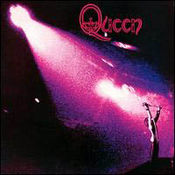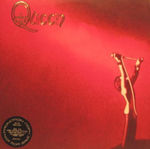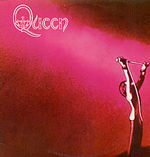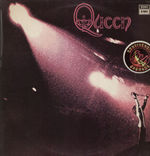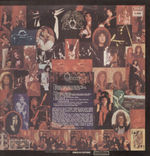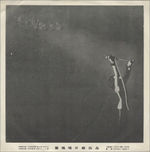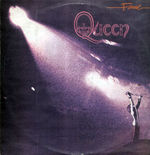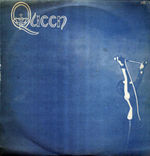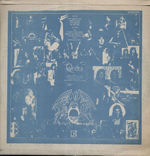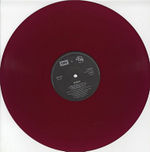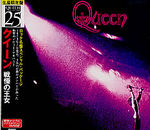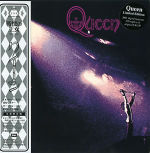From Queenpedia.com
The history of this album would not be complete unless a little background is given on the formation of Queen. Brian May and Roger Taylor, who had been performing in their own bands in their own hometowns of Middlesex and Truro, respectively, throughout the 1960s, finally crossed paths in 1968 when Roger answered an ad placed by two aspiring musicians, Brian and former bandmate and good friend Tim Staffell. Calling for a "Ginger Baker-type drummer", Brian was suitably impressed when he saw Roger tuning a snare drum. The two instantly hit it off and became musical allies and sparring partners for the next forty years. The resulting band, Smile, achieved moderate local success, and even scored a record deal with Mercury Records, though it was a one-off, and the resulting single, Earth backed with Step On Me, failed to attract any attention. Disspirited, Tim Staffell jumped ship in early 1970 and went off to form his own band called Humpty Bong, before returning to his other love, graphic design. Incidentally, Tim's friend and Ealing College classmate, Freddie Bulsara, had also been in a handful of bands, and had become a huge fan of Smile. While he never thought about joining the band, it was only when Tim left that Freddie suggested he, Brian, and Roger join forces and form their own band. Realizing they had nothing to lose, Brian and Roger agreed, and immediately the trio started discussing band names. Brian preferred Grand Dance; Roger suggested the Rich Kids. Freddie's suggestion, Queen, was one that initially made the other two laugh, then balk in shock. Initially uncertain regarding the connotations, Freddie's power of suggestion and confidence in the name reassured Roger and Brian, and they finally relented. In need of a bass guitarist, Roger called up his old friend Mike Grose and asked if he would like to play some music with the band. Mike came down from Truro to London, and the four jammed throughout the spring of 1970 before landing their first gig on 27 June, which was actually in Truro and had been organized by Roger's mother as a charity show for the Red Cross. Still billed as Smile, it wouldn't be until 12 July that the band played their first show as Queen at the Imperial College, Brian's alma mater. Three shows later, Mike left the band, and Barry Mitchell was recruited, based on the recommendation of Roger's friend, Roger Crossley. Barry stayed with the band until January 1971, when he, too, left, citing lack of success as the main reason. After one more bassist, Doug Bogie, came and went without making much of an impact on the founding members, John Deacon was introduced through a mutual friend, and, after a bit of cajoling and persuasion, John auditioned and became the fourth and final member of Queen in February 1971. Freddie and Brian had written several songs, and, after schleping around the live circuit for several years, the band wanted to record some of their own songs professionally. A Catch-22 emerged: studios wouldn't record the band without a record deal, and they couldn't get a record deal without recording some of their songs. It wasn't until September 1971 when a friend of Brian's, Terry Yeadon, informed the band that the newly-built De Lane Lea Studios was looking for a band to test out their equipment. Armed with five self-penned compositions – Liar, Great King Rat, Keep Yourself Alive, Jesus, and The Night Comes Down – the band recorded the songs with minimal fuss, and, suddenly, they had a demo tape to send around to record companies. During the sessions, John Anthony, who had worked with Smile a few years prior, visited Queen to catch up with Brian and Roger, and were so impressed with the band that he suggested them to the managers of Trident Studios, Barry and Norman Sheffield. Though they had been in discussions with record labels such as Chrysalis and Charisma, the band held off and it wasn't until Barry contacted them and had a special show arranged so that he could see them in action live that he signed them to the Trident management team. The band was ushered into Trident Studios in London to record their debut album while the Sheffields shopped Queen's name around to prospective record companies. Though it was recorded in bits and pieces, sessions for Queen's debut album stretched on for over a year, during studio downtime; in other words, when other, more famous artists were unable to use already-booked studio time – such as David Bowie or Paul McCartney (who was notorious for block-booking studio time and then not showing up) – Queen would have the opportunity to record their own music. While the tradition of a debut album is to just have the band bash out their stage material with little attention paid to overdubs, Queen were adamant that their songs be recorded their way until they were absolutely perfect. By 1972, Queen had amassed a large portion of self-penned material, with most of the songs being tried out in the live setting first. Freddie and Brian were proving to be prolific songwriters, so it was only a matter of selecting the most representative material to be released on their debut album. (The remainder of the songs would be spread out sporadically on the following two albums.) Not that Queen were short of material, but two of Smile's own songs were recorded during the sessions: Doing All Right, written by Brian and Tim Staffell, was released on the debut, while Polar Bear, written by Tim, was not. Additional material that was considered surplus to requirements includes Freddie's Mad The Swine (which turned up on the 1991 Hollywood Records reissue of the debut), the four-way collaboration Stone Cold Crazy, a rock 'n' roll medley which included Jailhouse Rock, the blues workout See What A Fool I've Been, three songs which would be released on their next album (Ogre Battle, White Queen (As It Began), and Seven Seas Of Rhye), and the most sought-after unreleased track in Queen's history, Hangman, which was performed live up until 1975 but never released on an album. One other song which has caused much debate is Silver Salmon, apparently written by Tim Staffell and recorded during these sessions, though some have also claimed it was actually recorded during News Of The World sessions. The album was completed by the beginning of 1973, by which time Trident had gotten Queen a record deal with EMI Records in the UK and Elektra Records in the US. Imaginatively titled Queen (rejected titles include Deary Me, a favorite saying of producer Roy Thomas Baker's, and Top Fax, Pix, and Info), the album was released in July 1973, with a striking front cover by friend of the band, Douglas Puddifoot. (Brian, Freddie, and Douglas also assembled the photographic collage on the rear sleeve.) The album received sparse attention (as did the single Keep Yourself Alive) though it only peaked at a disappointing #32 in its initial run in the UK charts, first appearing late in March 1974, by which time the band had released its second album and was working hard around England, performing live. The album would finally achieve its peak position of #24 in February 1975, thanks to their determination and the success of Killer Queen, while in America, the album reached a respectable (for a relatively unknown British group!) #83. Tracklists
Credits
Charts
Liner notes
Singles
Queen Talks
Reviews
SleevesReleases
|
||||||||||||||||||||||||||||||||||||||||||||||||||||||||||||||||||||||||||||||||||||||||||||||||||||||||||||||||||||||||||||||||||||||||||||||||||||||||||||||||||||||||||||||||||||||||||||||||||||||||||||||||||||||||||||||||||||||||||||||||||||||||||||||||||||||||||||||||||||||||||||||||||||||||||||||||||||||||||||||||||||||||||||||
